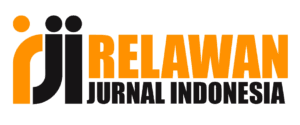HRM Strategies for Managing Generation Z Talent: Understanding Workplace Needs and Motivations
DOI:
https://doi.org/10.56956/jbmi.v4i1.414Keywords:
Generation Z, Human Resource Management, Employee MotivationAbstract
The purpose of this study is to examine the challenges and talent management strategies in managing Generation Z in the workplace. Generation Z, as digital natives, brings significant changes that demand the adaptation of an integrated Human Resource (HR) strategy. The method used is qualitative with a literature review approach, which collects data from various scientific journals, books, and research reports. The results of the study show that companies face challenges in three main aspects: attracting, employing, and retaining Generation Z. In terms of attracting, the challenges are building a strong company image and positive reputation, as well as creating an efficient and digital recruitment process. In terms of employing, the challenges are conducting holistic skill assessments (covering both soft skills and hard skills), implementing an effective and engaging onboarding process, and managing Generation Z's expectations realistically. Meanwhile, to retain Generation Z, companies must address the high turnover rate by providing a positive work environment, clear career development opportunities, and competitive compensation and benefit packages. By implementing these strategies, companies can not only maximize the potential of Generation Z but also be better prepared to face the challenges and opportunities of an increasingly digital future of work.
References
Amrullah, Muhammad; Perkasa, Didin Hikmah; Edward, R. (2025). View of Gen Z and the Future of Work_ Adapting HRM Strategies for A Digital Workforce.pdf (pp. 1835–1843).
Arora, R., & Babu, R. (2025). ScienceDirect A Review on Generative AI Powered Talent Management , Employee Engagement and Retention Strategies : Applications , Benefits , and Challenges. 260, 683–691.
Basuki, Afryantho Dwi; Ramadhania, A. T. (2021). The Implementation Of Talent Management In Improving Organizational Effectiveness (Case Study In Ministry Of Environment And Forestry). Journal Of Public Policy and Applied Administration, 3(2), 6.
Dwidienawati, D. (2022). Impactful Change. In Human Resource Development (Collaboration for impactful change).
Ekasani, Deva; Kuswinarno, M. (2024). View Of Digital-Native Workforce_ Strategi Pengembangan Sdm Untuk Generasi Z.pdf (pp. 1–7).
Fahma Diena Achmada, Budi Eko Soetjipto, & Sopiah. (2022). the Effect of Talent Management on Employee Engagement and Employee Retention in Improving Employee Performance. LITERACY : International Scientific Journals of Social, Education, Humanities, 1(3), 80–94.https://doi.org/10.56910/literacy.v1i3.320
Franciska, F., Magito, M., & Perkasa, D. H. (2023). Analisis Pengaruh Pengembangan Karir, Kepuasan Kerja, Dan Motivasi Kerja Terhadap Kinerja Karyawan Pada Pt. Arta Boga Cemerlang Jakarta. Mufakat: Jurnal Ekonomi, Manajemen Dan Akuntansi, 2(3), 202–218. https://doi.org/10.572349/mufakat.v2i3.738
Kirchmayer, Z., & Fratričová, J. (2020). What motivates generation Z at work? Insights into motivation drivers of business students in Slovakia. Innovation Management and Education Excellence through Vision 2020.
Mujibi, Agis; Azmy, A. (2024). View Of Talent Management Sebagai Penunjang Kinerja Perusahaan.pdf (pp. 117–127).
Sudrajat, W., Affandi, A., & Djulius, H. (2023). Talent Management Implementation Strategy in an Effort To Realize Superior Performance. Sosiohumaniora, 25(2), 174. https://doi.org/10.24198/sosiohumaniora.v25i2.47679
Sugiyono. (2019). Metode penelitian kuantitatif kualitatif dan R dan D (Sugiyono (ed.); 2nd ed.). Alfabeta.
Suseno, B., Kamika, I. W., Sutrimo, & Rakhman, S. (2024). Strategi Mengembangkan Talenta Generasi Z Di Perusahaan Pialang Asuransi Digital. Teknologi, Bisnis Dan Pendidikan, 2(3), 535–547.
Turner, A. (2015). Generation Z: Technology and Social Interest. The Journal of Individual Psychology, 71(2), 103–113. https://doi.org/10.1353/jip.2015.0021
Tussing, T. E., Chipps, E., & Tornwall, J. (2024). Generational Differences in the Nursing Workforce: Strategies for Nurse Leaders. Nurse Leader, 22(5), 602–608. https://doi.org/10.1016/J.JMNL.2024.03.007
WEF. (2020). The Future of Jobs Report 2020 | World Economic Forum. https://www.weforum.org/publications/the-future-of-jobs-report-2020/
Yağmur, Y. (2024). An Exploratory Research to Reveal the Habits, Motivations, and Tendencies of Generation Z to Use Social Media Platforms as a Leisure Activity. Advances in Hospitality and Tourism Research (Ahtr), 12(2), 172–199. https://doi.org/10.30519/ahtr.1452356
Downloads
Published
How to Cite
Issue
Section
License
Copyright (c) 2025 Indri Guslina, Rita Mardiana, Adrian Adha, Ahmad Juhari, Giharjo

This work is licensed under a Creative Commons Attribution-ShareAlike 4.0 International License.








